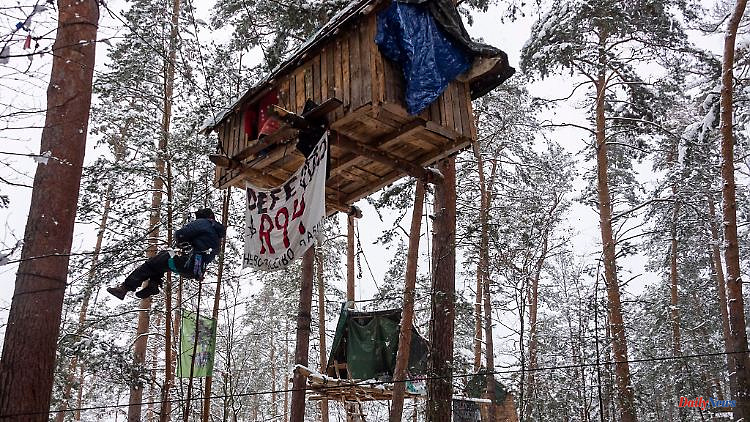Dresden (dpa / sn) - The protest against the gravel mining in the Heidebogen forest north of Dresden has reached the state parliament. At a debate requested by the Greens on climate-neutral construction, left-wing politician Marco Böhme used the template on Wednesday to renew his party's criticism of the project. "Now there needs to be a dialogue and talks so that there is no violent evacuation," he said, referring to environmental activists who have long occupied the forest. The climate crisis is omnipresent, and the construction industry must also be scrutinized.
The KBO company in Ottendorf-Okrilla (Bautzen district) wants to continue quarrying gravel in the region and has a license to do so. There is increasing protest against this. After the forest squatters missed a deadline to remove the tree houses they had built, the camp is to be cleared in the coming days.
Green politician Volkmar Zschocke recalled the legal basis for gravel mining during the debate. "What kind of constitutional state would that be, in which a legally binding approval by a party or a minister could be stopped." In a constitutional state, however, the citizens are not powerless at the mercy of the projects of the construction industry. Complaints against this are often successful. Such a path is open to residents and environmental organizations.
According to Böhme, it must be possible to review rights granted decades ago with a view to current climate protection. After Lützerath and the Fechenheimer Wald, the Heidebogen is already threatened with the third eviction of an ecological project with the participation of the Greens in the government. That's a "crass number."
Students from the Technical University of Dresden supported the protests in the Heidebogen on Wednesday. "Now it's time to get loud and let the multitude of non-violent forms of protest flourish," said Klara-Johanna Fabisch from the TU environmental initiative. Developments there have been observed for two years. "The effects on the adjacent moor area are particularly dramatic. The moor is in danger of drying out due to the lowering of the groundwater level.












